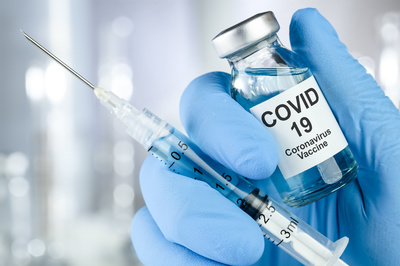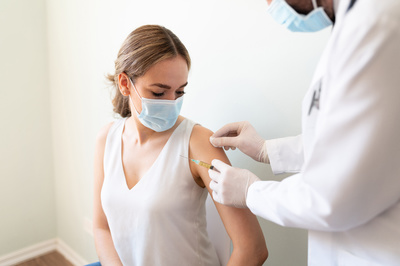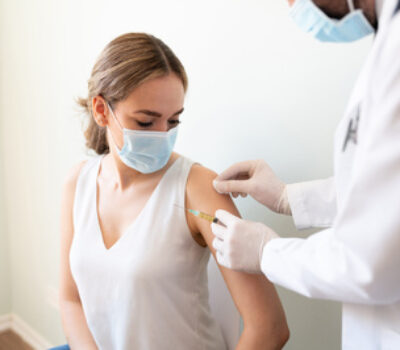Overview: A new outreach program seeks to overcome COVID vaccine hesitancy among people with opioid use disorder, who are at higher risk for negative outcomes from COVID-19 and also have less access to vaccine resources.

In a recent Addiction Policy Forum study, 47% of participants with OUD said in January they were unwilling to take the vaccine, compared to around 1 in 5 among the general population. Some concerns about the vaccine included its newness and the inability to determine long-term effects, as well as mistrust of the government and a perception that the participant was not at high risk for severe symptoms from the virus.
Vaccine hesitancy among those with opioid use disorder may not be based on reality in some instances. While younger populations are less likely to be hospitalized or die from COVID-19, the long-term abuse of opioids has impacts on the body’s systems that put users at a higher risk for a severe or fatal case of the disease, regardless of age.
Barring any long-term effects, which are still unknown but are predicted to be unlikely based on 10 years of study into mRNA vaccines, it is far less risky for those with OUD to be vaccinated than to remain unvaccinated. Vaccine hesitancy among this population is costing lives.
In an effort to help overcome vaccine hesitancy among those with OUD, NIH and coronavirus task force member Dr. Anthony Fauci and other health officials have worked with the Foundation for Opioid Response Efforts (FORE) and the Addiction Policy Forum (APF) to launch an initiative aimed at reaching out to this group.
The program was announced in a webinar hosted by APF on March 23, 2021, a conversation with Dr. Fauci and Dr. Nora Volkow, Director of the National Institute on Drug Abuse (NIDA), about the relationship between COVID-19 and addiction. (Watch the Webinar below.)
New Initiative Helps People Get Vaccines
Through the outreach program, trained “vaccine navigators” will contact those with OUD to talk to them about the importance of getting vaccinated and to help them schedule appointments if they are willing. Help will also be available to family members and caregivers.

New programs may help reduce vaccine hesitancy.
“This project will use a two-pronged approach to reach people with substance use disorder who want the vaccine as well as those who say they are hesitant,” FORE president Karen A. Scott said.
“With the anxieties of the pandemic on top of the stress and difficulties managing a substance use disorder or caring for a loved one who has a substance use disorder, providing a simplified approach to scheduling vaccine appointments as well as health and wellness information about the vaccines will be a critical resource for patients and their families,” APF CEO Jessica Hulsey said.
The navigators will be available through APF’s helpline, website, Connections App, and newsletter for those who need assistance and face challenges in getting the vaccine.
As people begin to see the benefits of vaccination, vaccine hesitancy is losing its grip on the population, and with the help of national and local initiatives like this one, the hope is that those with OUD will protect themselves and their loved ones from the serious impacts of the disease.
If you or a loved one struggles with substance use, Harris House would like to hear from you. Call us to learn about admissions or with any questions you have about our top-rated programs.








